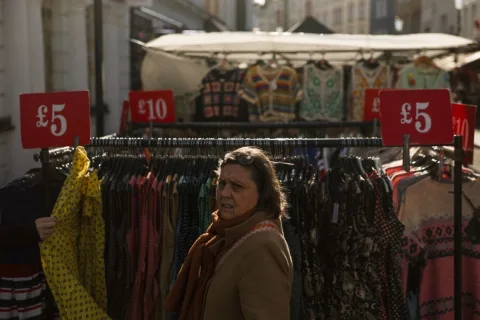
BEIJING: China on Friday vowed to gradually phase out the slaughter and sale of live poultry at food markets, in a move welcomed by animal rights activists amid the coronavirus pandemic. The announcement came as China stepped up inspections of wholesale food markets and outlawed the sale and consumption of wildlife, after a recent COVID-19 outbreak in Beijing was traced to a major agricultural wholesale market.
The virus is believed to have emerged at a market that sold live animals in the central city of Wuhan late last year. “China will restrict the trading and slaughter of live poultry, encourage the mass slaughter of live poultry in places with certain conditions, and gradually close live poultry markets,” said Chen Xu, an official at the State Administration of Market Regulation, at a press briefing.
Live poultry kept in cages is a common sight in agricultural wholesale food markets and “wet markets”-smaller-scale fresh food markets-across China. The poultry is traditionally butchered on the spot by stallholders, or buyers can opt to slaughter the live animal at home. Some Chinese people traditionally believe that this allows for maximum freshness. Live seafood, amphibians and other creatures are also commonly sold at wet markets. Scientists believe the pathogen originated in bats before jumping to humans through a yet-unknown animal intermediary.
Chen urged local governments across China to “strengthen supervision of food safety at agricultural wholesale markets” and “investigate hidden safety risks”, taking the Beijing Xinfadi market virus hotspot as an example. “It is understood that more than 70 percent of meat, poultry, seafood, fruit and vegetables enter the market through wholesale agricultural markets,” he said.
There are more than 4,100 wholesale markets nationwide, a commerce ministry official told the briefing. The announcement was welcomed by animal rights groups. “We are happy to see that live-poultry markets are on their way out in China,” said Jason Baker, senior vice president of PETA Asia. “PETA hopes the State Administration of Market Supervision and Administration continues to stretch their wings and ban all live-animal markets nationwide.”
Services sector
China’s services sector expanded at the fastest pace in over a decade in June as the easing of coronavirus-related lockdown measures revived consumer demand, a private survey showed on Friday, though companies continued to shed jobs. The Caixin/Markit services Purchasing Managers’ Index (PMI) rose to 58.4, the highest reading since April 2010, from May’s 55.0, pulling further away from the trough hit in February as the coronavirus lockdown paralyZed the economy.
The 50-mark separates growth from contraction on a monthly basis. The rebound suggests China’s overall recovery is becoming more balanced and broader based as life slowly returns to normal in one of the world’s biggest consumer markets, though analysts believe it will take months for activity to return to pre-crisis levels. The services sector accounts for about 60% of the economy and half of the urban jobs, and includes many small, private companies which had been slower to recover initially than large manufacturers. Heavy job losses, pay cuts and fears of a second wave of infections have made some consumers cautious about spending and going out again. - Agencies










